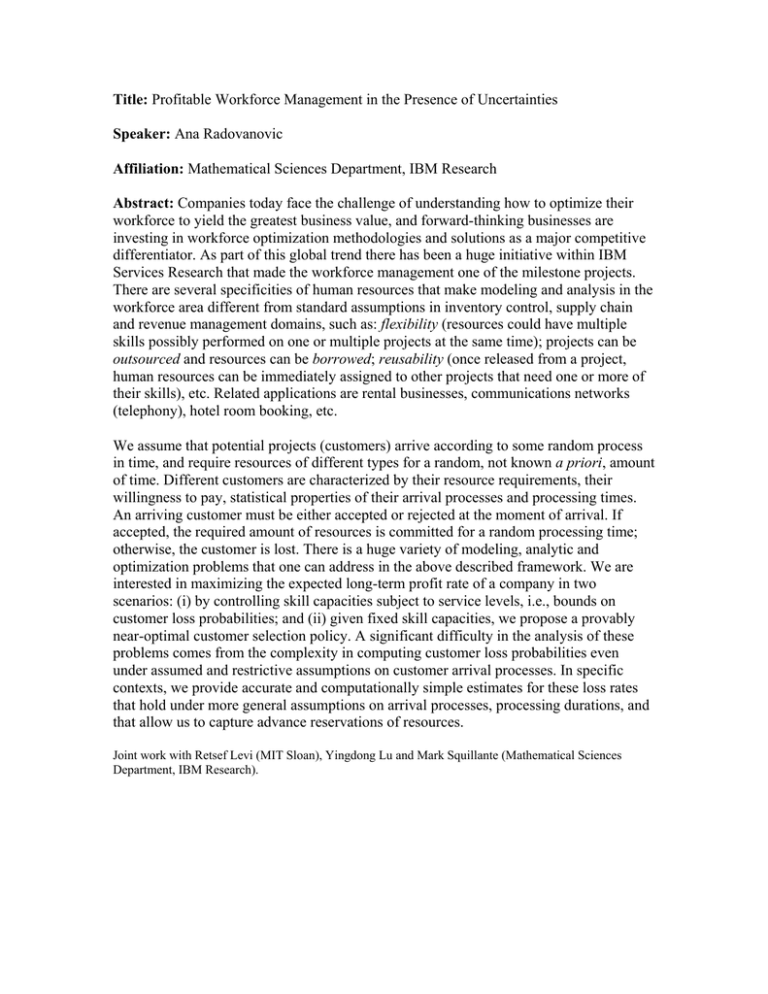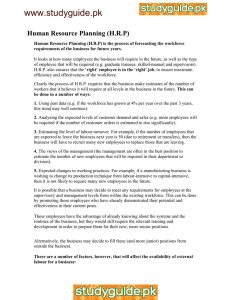Title: Speaker: Affiliation: Abstract:
advertisement

Title: Profitable Workforce Management in the Presence of Uncertainties Speaker: Ana Radovanovic Affiliation: Mathematical Sciences Department, IBM Research Abstract: Companies today face the challenge of understanding how to optimize their workforce to yield the greatest business value, and forward-thinking businesses are investing in workforce optimization methodologies and solutions as a major competitive differentiator. As part of this global trend there has been a huge initiative within IBM Services Research that made the workforce management one of the milestone projects. There are several specificities of human resources that make modeling and analysis in the workforce area different from standard assumptions in inventory control, supply chain and revenue management domains, such as: flexibility (resources could have multiple skills possibly performed on one or multiple projects at the same time); projects can be outsourced and resources can be borrowed; reusability (once released from a project, human resources can be immediately assigned to other projects that need one or more of their skills), etc. Related applications are rental businesses, communications networks (telephony), hotel room booking, etc. We assume that potential projects (customers) arrive according to some random process in time, and require resources of different types for a random, not known a priori, amount of time. Different customers are characterized by their resource requirements, their willingness to pay, statistical properties of their arrival processes and processing times. An arriving customer must be either accepted or rejected at the moment of arrival. If accepted, the required amount of resources is committed for a random processing time; otherwise, the customer is lost. There is a huge variety of modeling, analytic and optimization problems that one can address in the above described framework. We are interested in maximizing the expected long-term profit rate of a company in two scenarios: (i) by controlling skill capacities subject to service levels, i.e., bounds on customer loss probabilities; and (ii) given fixed skill capacities, we propose a provably near-optimal customer selection policy. A significant difficulty in the analysis of these problems comes from the complexity in computing customer loss probabilities even under assumed and restrictive assumptions on customer arrival processes. In specific contexts, we provide accurate and computationally simple estimates for these loss rates that hold under more general assumptions on arrival processes, processing durations, and that allow us to capture advance reservations of resources. Joint work with Retsef Levi (MIT Sloan), Yingdong Lu and Mark Squillante (Mathematical Sciences Department, IBM Research).






